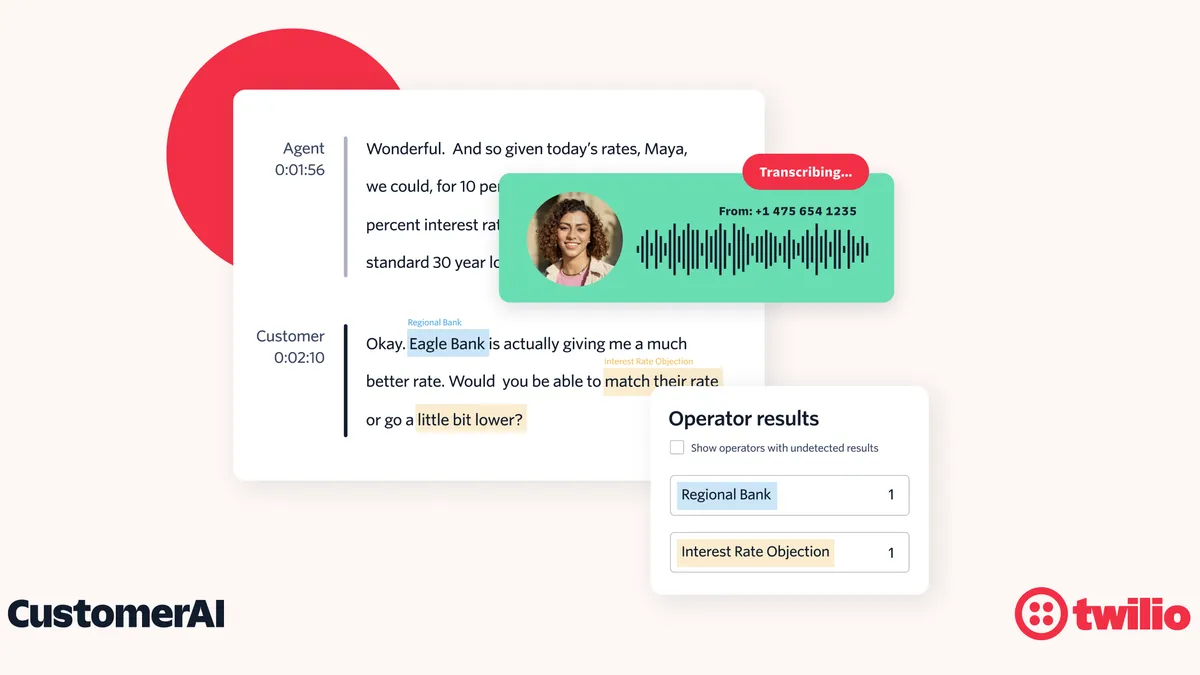Dive Brief:
- Twilio is targeting voice data in its AI-powered service, called Voice Intelligence, which will extract data and insights from inbound calls for support and outbound calls for sales and marketing, the company announced in August.
- “We’re first doing speech recognition on these calls to turn that ephemeral call … into structured data,” Andy O’Dower, head of product, voice and video at Twilio. The tool then uses a language operator that pulls out common feedback, compliance risks and other related insights as well as provides a transcript and summary of the call, O’Dower said. “We also have the ability now, especially with generative AI to do these at a larger, faster scale.”
- Customer engagement platform Twilio, with 36% of the Forbes Global 2000 as customers, supports brands like Toyota, The Motley Fool, Domino’s, Philips and Lyft, in addressing communication challenges. Twilio processes and powers more than 36.5 billion voice calls, 1.6 trillion emails and more than 1.8 trillion digital interactions annually, the company said.
Dive Insight:
Twilio Flex customers can integrate Voice Intelligence into their contact center, an area of the enterprise ripe for AI. The service, currently in public beta, will serve as a tool for contact center agents to gain better insights and provide a more personalized experience for the end user.
The Voice Intelligence tool will work in the background as a call is happening. It will record and analyze the content of the call in real-time and can automatically redact personally identifiable information from the recording, Twilio said.
The pre-built language operators are trained across a “wide swath” of customer data and maintained by the Twilio Team, according to a demonstration. Customers can request a customer operator or a machine learning operator that Twilio will train for a specific use case.
Twilio’s CustomerAI tech combines LLMs with real-time customer data from the company’s customer engagement platform to better understand and produce insights using predictive AI capabilities, which Twilio calls CustomerAI Predictions. The vendor’s products run on an API infrastructure and benefit from partnerships to help scale, according to O’Dower.
CustomerAI is "like having a full-time personal agent who’s looking after every one of your customers,” said Meera Vaidyanathan, VP of product for Twilio Flex.
The company partnered with Google Cloud on the underlying technology powering the generative AI services. Twilio is also partnering with AWS and OpenAI to infuse privacy and security into the product development lifecycle, O’Dower said.












